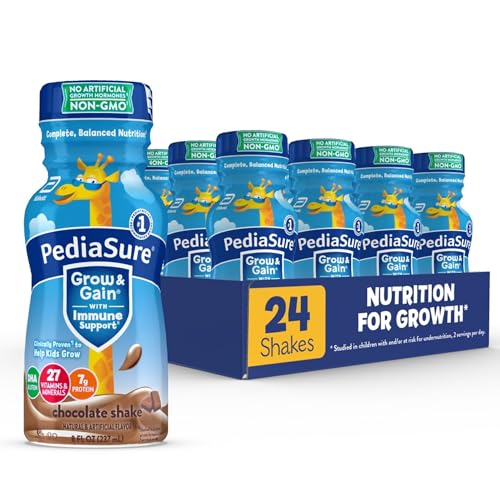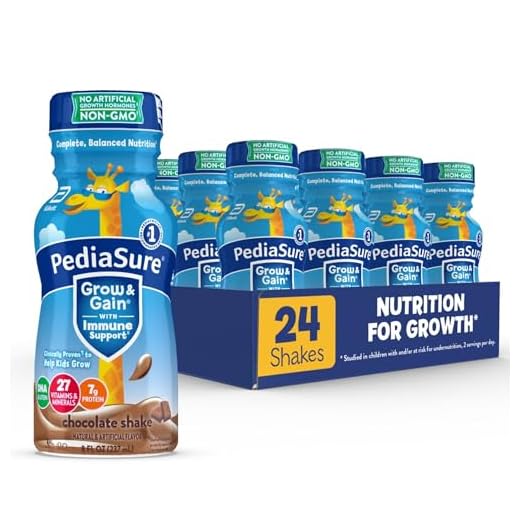

When it comes to providing essential nutrients for growing bodies, parents often look for suitable alternatives to traditional food sources. One popular option that has emerged in recent years are protein shakes, a convenient and quick way to supplement daily protein intake. However, the question remains: Is it appropriate to introduce children to protein smoothies?
The concept of protein shakes may evoke images of bodybuilders and fitness enthusiasts, but their potential benefits extend beyond the gym. Protein plays a crucial role in the growth and development of young bodies, aiding in the formation of muscles, bones, and tissues. While protein is naturally present in various foods, such as meat, fish, dairy, and legumes, protein shakes offer a concentrated and easily digestible source.
However, before diving into the world of protein shakes for young ones, it is essential to consider various factors. The nutritional needs of children differ from those of adults, and their diets should primarily focus on whole, balanced meals. While protein is an essential building block, it is crucial to prioritize other macronutrients, such as carbohydrates and fats, as well as a wide range of vitamins and minerals.
Benefits of Protein for Children’s Growth and Development
Evaluating the advantages of protein intake is crucial for promoting optimal growth and development among children. Including high-quality protein sources in their diet can contribute to various aspects of their physical and cognitive well-being.
- Supports Muscle Development: Adequate protein consumption provides essential amino acids that help in building and repairing muscles. It promotes the development of lean body mass, which is vital for children’s overall strength and physical fitness.
- Enhances Brain Function: Protein plays a crucial role in the production of neurotransmitters, which are essential for cognitive function. Consuming protein-rich foods aids in maintaining focus, improving memory, and supporting overall brain health in children.
- Boosts Immunity: Proteins are key components of the immune system, as they aid in the production of antibodies and other immune cells. By incorporating protein into their diet, children can strengthen their immune response, reducing the risk of infections and illnesses.
- Provides Sustained Energy: Unlike carbohydrates, protein provides a longer-lasting source of energy for children. Including protein in meals and snacks helps in maintaining stable blood sugar levels, preventing energy crashes and promoting consistent energy throughout the day.
- Supports Healthy Growth: Protein is essential for proper growth and development during childhood. It aids in the formation of new tissues, such as bones, muscles, and organs, ensuring children reach their full potential in terms of height and overall physical development.
Introducing protein-rich foods and snacks into children’s diets can offer numerous benefits that positively impact their growth, development, and overall well-being. It is important to ensure a varied and balanced diet that includes lean meats, dairy products, legumes, nuts, and seeds to meet their protein requirements.
Understanding the Role of Protein in a Child’s Diet
Protein plays a crucial role in a child’s diet, providing the building blocks necessary for growth and development. A well-balanced intake of protein contributes to the formation of muscles, bones, and other vital structures. Not only does protein support physical growth, but it also aids in the production of enzymes, hormones, and antibodies that help maintain a healthy immune system.
The Importance of Protein in Child Development
During childhood, the body undergoes rapid growth and development, requiring an increased intake of nutrients, including protein. Protein provides the essential amino acids that are necessary for the construction and repair of tissues. It helps children reach their full growth potential, ensuring proper muscle development, bone strength, and neurological function.
Recommended Protein Intake for Children
The amount of protein a child needs varies depending on their age, weight, and level of physical activity. The Recommended Dietary Allowance (RDA) suggests an intake of 0.95 grams of protein per kilogram of body weight for children aged 4 to 13 years. However, this can vary for athletes and those with specific medical conditions. Consulting a pediatrician or registered dietitian can help determine the appropriate protein intake for individual children.
| Age Group | Recommended Daily Protein Intake |
|---|---|
| 1-3 years | 13 grams |
| 4-8 years | 19 grams |
| 9-13 years | 34 grams |
It is important to note that a balanced diet that includes a variety of protein sources, such as lean meats, poultry, fish, eggs, dairy products, legumes, and nuts, can adequately meet a child’s protein needs. Protein shakes may not be necessary for most children if they are consuming a well-rounded diet. However, they may be useful in certain circumstances, such as for children with specific dietary restrictions or those who struggle to meet their protein requirements through food alone. It is recommended to consult a healthcare professional before incorporating protein shakes into a child’s diet.
When and How to Incorporate Protein Supplements for Children
Exploring the optimal timing and methods for introducing protein supplements into a child’s diet can be a beneficial consideration for optimizing their nutrition intake. By understanding when and how to incorporate these supplements, parents can support the growth, development, and overall health of their children in a mindful and balanced way.
1. Introducing protein supplements during growth spurts
During periods of rapid growth and development, such as growth spurts, incorporating protein supplements may provide valuable support. These supplements can help meet the increased protein needs required for tissue repair and growth, assisting in maintaining overall health.
2. For active children with increased energy expenditure
Children who engage in regular physical activities, such as sports or active hobbies, may have higher energy expenditure and increased muscle needs. Protein supplements can be introduced as a convenient and efficient way to ensure an adequate protein intake, supporting muscle recovery and growth.
3. Balancing protein supplements with whole foods
While protein supplements can be a helpful addition to a child’s diet, it is important to emphasize the importance of a balanced and varied diet that incorporates whole foods. Encouraging children to consume protein-rich foods such as lean meats, poultry, fish, eggs, dairy products, legumes, and nuts is essential for providing essential nutrients and promoting healthy eating habits.
4. Age-appropriate protein supplements
When incorporating protein supplements, it is crucial to choose age-appropriate options that are specifically designed for children. Selecting reputable brands and consulting with a healthcare professional or registered dietitian can help ensure the safety and appropriateness of the chosen supplement.
- Choose protein supplements that are formulated with natural ingredients and free from unnecessary additives.
- Consider protein supplements that provide a balanced profile of essential amino acids.
- Ensure that the protein supplement aligns with the child’s dietary preferences and any specific dietary restrictions or allergies.
In conclusion, when considering the inclusion of protein supplements for children, mindful and informed decisions can be made by considering the child’s growth and activity levels, emphasizing a balanced diet, and selecting age-appropriate options. Incorporating protein supplements in a responsible manner can contribute to meeting nutritional needs, supporting growth, and promoting overall health for children.
Considerations and Potential Risks of Providing Protein Supplementation to Children
The decision to include protein shakes in a child’s diet requires careful consideration and an understanding of the potential risks involved. It is essential to weigh the benefits against the possible drawbacks before incorporating these supplements into a child’s routine.
- Age and Development: The age and developmental stage of the child should be taken into account when considering protein supplementation. Young children have specific nutritional requirements that differ from those of adults, and their bodies may not process protein supplements as effectively.
- Proper Nutrition: Providing children with a well-balanced diet that includes a variety of natural protein sources is crucial. Relying too heavily on protein shakes can lead to imbalances in other essential nutrients and affect overall nutritional intake.
- Physical Activity Level: Children who engage in intense physical activities or sports may benefit from increased protein intake. However, it is essential to consider the specific needs of the child and consult a healthcare professional before making any dietary changes.
- Potential Allergies or Sensitivities: Some protein shakes contain common allergens, such as milk, soy, or nuts. It is crucial to read product labels carefully and consider any potential allergic reactions or sensitivities that the child may have.
- Protein Intake from Food Sources: Prioritizing whole food sources of protein, such as lean meats, fish, eggs, dairy products, legumes, and nuts, should be the foundation of a child’s diet. Protein shakes should not replace regular meals or nutritious snacks.
- Impact on Digestive System: Protein supplements, especially those with high protein content, can be challenging for children’s digestive systems to process. Digestive discomfort, including bloating or constipation, may occur as a result. Proper hydration and gradual introduction of protein supplements can help alleviate these issues.
In conclusion, while protein shakes can have their benefits for children, it is vital to consider various factors, including age, overall nutrition, physical activity level, allergies, and the child’s digestive capacity. Prioritizing a well-balanced diet and consulting with a healthcare professional can help determine the suitability of protein supplementation for a child.







